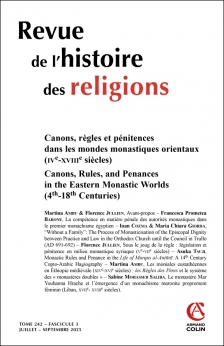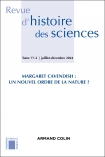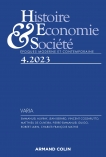
REVUE DE L'HISTOIRE DES RELIGIONS (3/2025)
Pour acheter ce numéro, contactez-nous
Recevez les numéros de l'année en cours et accédez à l'intégralité des articles en ligne.
Dans le cadre d’un projet portant sur le traitement ecclésiastique et monastique des infractions pénales entre Constantin et Justinien (IVe-VIe siècles), la problématique soulevée ici a trait à la compétence des autorités monastiques lors de la commission d’infractions pénales, et aux procédures mises en oeuvre. Si aucune loi romaine ne reconnaît aux autorités monastiques des pouvoirs de juridiction en matière pénale, lorsqu’une infraction est commise par un moine (ou un postulant), les autorités monastiques exercent cependant une compétence de fait. La condition de possibilité de cet exercice hors la loi est la non-dénonciation des comportements infractionnels aux autorités étatiques, ce qui permet une gestion interne des crimes, lorsqu’ils sont commis dans le cadre de la vie monastique.
As part of a wider project looking at the ecclesiastical and monastic handling of criminal offences between the reigns of Constantine and Justinian (4th-6th centuries), the issue raised here concerns the jurisdiction of monastic authorities when criminal offences were committed, and the procedures used. Although Roman law did not recognise any jurisdiction on the part of the monastic authorities with regard to criminal matters, when an offence was committed by a monk (or a postulant), the monastic authorities nevertheless exercised de facto jurisdiction. The necessary condition for this practice outside the law was that the offending behaviour should not be reported to the state authorities, which allowed for the internal management of crimes when they were committed within the framework of monastic life.

